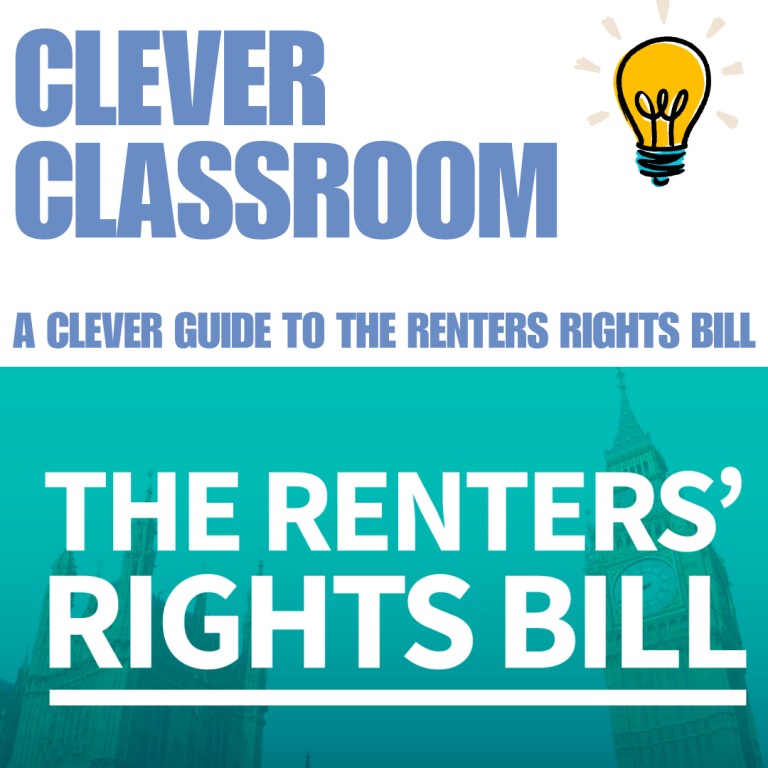


|
The Government has released its draft of the Renters’ Rights Bill (RRB). After years of inaction, the student housing sector is now hurtling towards large-scale reform, with Housing Minister Matthew Pennycook even suggesting it may be in place by summer 2025. Unlike the conventional rental market, students often sign up for houses 6 to 11 months before the tenancy starts. Today, students are touring and signing for homes that they’ll move into in summer 2025 when the RRB is likely to be law.
So, with just weeks to prepare, what will the changes mean for student accommodation?
Welcome to Day 4 of the Clever Classroom
Among the rest |
 |
|
As with the original Renters (Reform) Bill, the Renters’ Rights Bill gives tenants the right to request permission from the landlord to keep a pet. The request must be in writing and include a description of the pet. The landlord must respond within 28 days and will not be able to turn down the request without good reason. The tenant will be able to challenge unfair decisions, which is likely to be done through the new Private Rented Sector Ombudsman.
The Tenant Fees Act 2019 introduced a cap on tenancy deposits of five weeks' rent and banned tenant fees. However, this had an unintended side effect: many landlords in England became reluctant to accept tenants with pets due to concerns over potential damage costs. In response, the previous government amended the Renters (Reform) Bill, allowing landlords to charge tenants for the cost of pet insurance. This provision remains in the new Renters’ Rights Bill, and the Tenant Fees Act will be updated to permit pet insurance as a valid payment. Tenants will either need to take out pet insurance as requested by their landlord or reimburse the landlord for the expense.
The Renters' Rights Bill will establish a new Private Rented Sector Landlord Ombudsman to offer fast, fair, and impartial assistance in resolving tenant complaints outside of the courts. Participation in the ombudsman scheme will likely be mandatory for all landlords. The ombudsman will have the authority to direct landlords to issue apologies, implement corrective actions, and provide compensation to tenants when deemed appropriate.
What does this mean for you? Due to the pets and the introduction of the Ombudsman, it's expected that the cost of your liability insurance will increase. We recommend securing insurance policies that offer comprehensive coverage to protect you fully. We can assist you in arranging a range of insurance options through our specialist brokers to ensure you're adequately covered.
Rent levels must be set before advertising, which is likely to lead to a significant increase, potentially reaching unrealistic levels. Our role will be to negotiate the rent between you and the applicant to ensure a fair agreement is reached. Luckily, with our experienced team, your investment is in safe hands. We are committed to maintaining the highest standards, ensuring that our team is professionally trained and ready to support you through the upcoming legal changes.
As we have mentioned, we are now a proud partner of Sturents! They recently release their Student year in review webinar, which we attended live. We are able to share this with you. Topics covered:
???? How shifts in student demand volatility and student demographics could impact strategy. ???? The latest on PBSA leasing trends, and how to stay ahead in a challenging market. ???? What to expect from the Renters’ Rights Bill, and how it may affect your operations. ???? A detailed look at rental growth trends and projections for the 2024-24 lettings cycle. ???? Where the balance between supply and demand is heading, both nationally and in key cities. ???? Looking forward to 2025-26, helping you plan ahead with confidence.
You can watch the webinar here
|